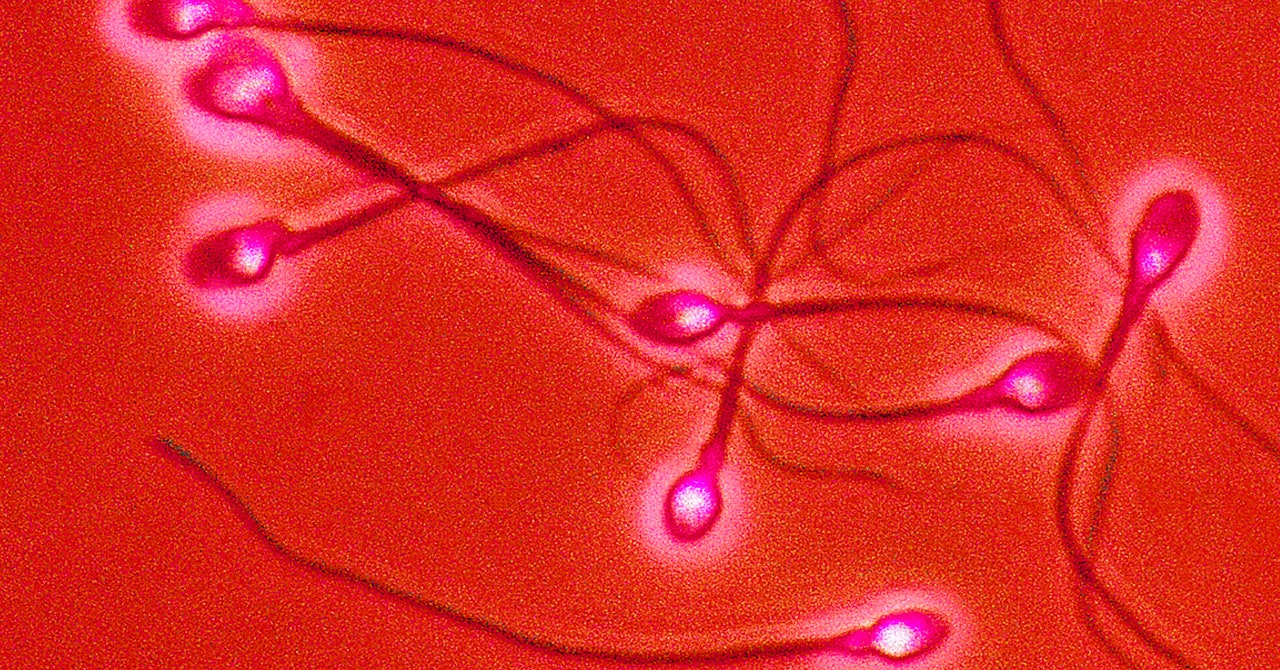
Over the millennia, people have come up with some very effective ways to avoid having babies. The ancient Egyptians and Greeks used linen sheaths and animal bladders, precursors to modern latex condoms and diaphragms. Now we’ve got spermicides, sponges, intrauterine devices, pills, and implants to keep sperm and egg apart. There’s just one problem: The people who want to avoid pregnancy aren’t always using contraception.
“The big fact here is that about half of all pregnancies are unintended,” says Deborah Anderson, a professor at Boston University Medical School who specializes in obstetrics, gynecology, and infectious diseases. “Even though we have a really good method in hormonal contraception, it’s not penetrating as well as we’d like.”
There are plenty of reasons why some people don’t want to use hormonal contraception: It requires a prescription, it can cause unpleasant side effects, it puts the onus of contraception on women, and it requires remembering a daily pill or getting a shot every three months, or having a more invasive procedure to put in an implant. Other methods have their drawbacks, too: Some require partner consent, are easy to forget or use incorrectly in the heat of the moment, or have a lower success rate.
So scientists have been working on a new method that would be easy to use, discreet, and effective without changing women’s hormones. This strategy uses manufactured proteins called monoclonal antibodies to mimic antibodies used by the immune system and attack sperm before they make it to the egg. Recent papers—one published in Science Translational Medicine in August and another published in EBioMedicine in July—demonstrate that these antibodies can latch onto sperm and render them impotent. Other studies have investigated whether these antibodies could be used to fight off HIV or the virus that causes herpes, and whether they are safe to apply as a topical contraceptive or as an insert like a vaginal ring.
“The timing is right,” says Anderson, a coauthor on the EBioMedicine paper, which showed that manufactured antibodies were effective at binding to sperm.
If monoclonal antibodies sound familiar, that’s because they’ve recently gotten a lot of attention as a treatment for fighting Covid-19. Antibodies are proteins that the human immune system makes to combat infections. They bind to specific sites on specific invaders and neutralize them, while also signaling to the body that it’s under attack and needs to make more defensive agents. We’re born with some of our antibodies. Others are created after we’re exposed to a new germ and get sick—think of the itchy, hard-won immunity that comes from having the chickenpox. And some are created after exposure to a vaccine that trains the body to fend off certain invaders without the misery of actual illness.
And now, some are created in the lab. These are meant to be short-term defenders, not a permanent immune system alteration; kind of like temporary bouncers who can block unwanted guests—sperm—from joining the party.
Anderson envisions a vaginal film that could be purchased at a pharmacy without a prescription. Each film would last for about a day. “I think it might be popular for use by women who have occasional intercourse,” she says. “They don’t want to be on something like a hormonal method that is a constant method. They would want to use a product only when they need it.”
Some people naturally produce anti-sperm antibodies, which don’t kill the sperm, but make them coagulate into a giant tangle. When the sperm can’t swim out of the vagina’s inhospitable, acidic environment, they die. In the 1970s, scientists started trying to reproduce those antibodies in the lab. But “at that time, the ability to manufacture antibodies and give them at specific dosages just was not possible,” says Samuel Lai, director of the pharmacoengineering program at the University of North Carolina at Chapel Hill and coauthor on the August paper. It was also incredibly expensive to synthesize enough of them. “That’s why all of the early work was focused on a contraceptive vaccine,” he continues.


